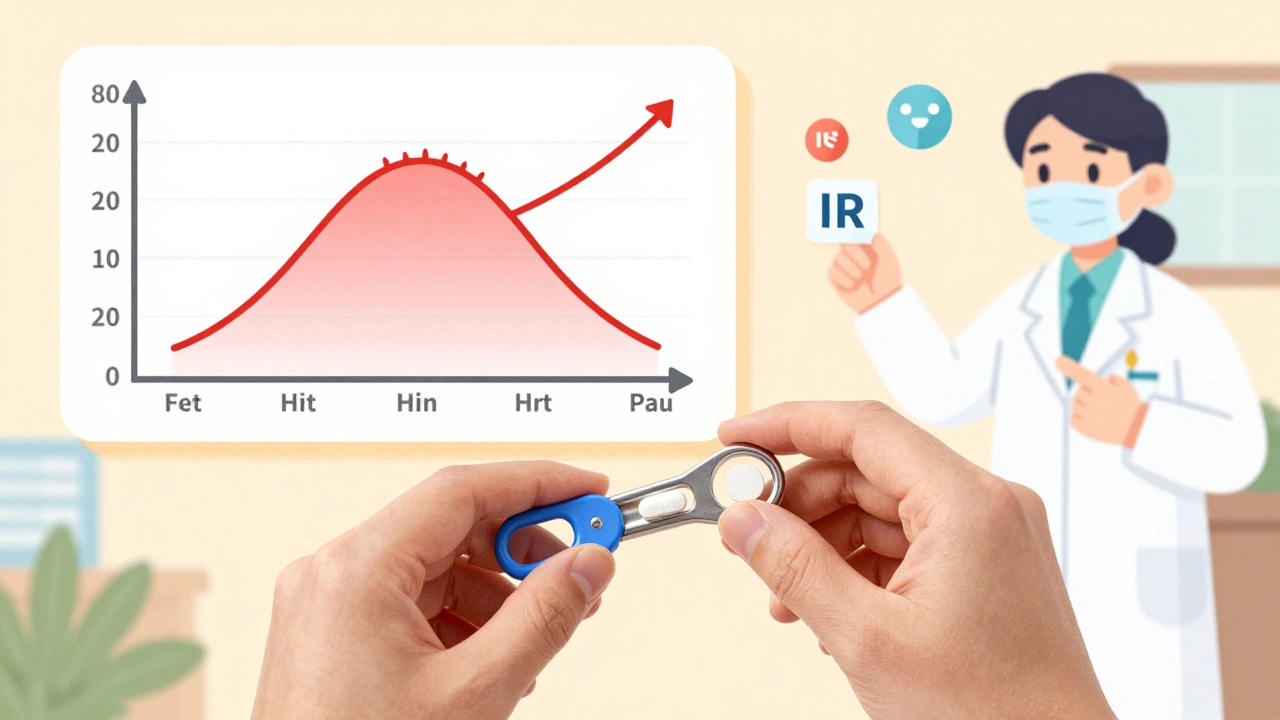Side Effects: Understanding What Meds Can Do to Your Body
Ever started a medication and noticed some unexpected reactions? That’s what side effects are—unwanted changes your body might have when taking medicine. It’s normal to worry about them, but knowing how side effects work and what to watch for helps you stay in control of your health.
Most medications aim to fix a problem, like reducing pain or controlling blood sugar. But because they affect your body’s chemistry, some can cause side effects. These can range from mild issues like a dry mouth or headaches to more serious problems that need quick medical attention. You’ll find articles about common meds and their side effects here, so you know what to expect.
How to Spot Side Effects Early
Knowing the usual side effects of your medication lets you catch problems fast. For example, some migraine drugs might cause dizziness or nausea right after taking them. If you feel off, don’t ignore it. Check the info that comes with your meds and look up trusted sources to compare symptoms. If side effects bother you or feel dangerous, reach out to your doctor or pharmacist immediately.
Be especially careful with new medications. Keep an eye on changes like skin rashes, trouble breathing, or severe stomach pain. These are signs to stop using the medicine and get help. Keeping a simple log of how you feel after taking your medication can help you track patterns and report clear info to your healthcare provider.
Tips to Manage and Reduce Side Effects
Got side effects? Sometimes small changes make a big difference. Taking pills with food can ease stomach irritation, or adjusting the time you take a dose might help reduce drowsiness. Never change your dose or schedule without talking to your doctor first. They might recommend an alternative medicine with fewer side effects, like switching from one antibiotic to another or trying a different diabetes medication.
Also, lifestyle choices play a part. Staying hydrated, eating balanced meals, and avoiding alcohol or smoking while on meds can reduce how strongly side effects hit. Always read the instructions and warnings from your pharmacy or doctor carefully—they often suggest simple ways to feel better while on treatment.
Remember, side effects are a common part of medicine but don’t have to control your life. With good info and support, you can handle side effects smartly and keep your health on track. Explore our guides to different meds and their side effects to stay one step ahead.
Splitting medication doses can reduce side effects by lowering peak blood levels, but only for certain drugs. Learn which medications are safe to split, the risks of tablet splitting, and how to do it safely with expert guidance.
Get to know Frumil—discover how it works, its uses for blood pressure and fluid retention, typical side effects, and insider tips for better results.
Ibuprofen is a go-to medicine for many people dealing with pain and swelling, but there's more to it than grabbing a bottle at the store. This article explores how ibuprofen works, its benefits, potential risks, and smart tips for safe use. Whether you're wondering about the right dose, how fast it works, or its effect on your body, you'll get clear and practical answers. I'll dive into when ibuprofen is your best friend—and when it's smarter to pause. Get ready to learn facts that might change the way you reach for that little tablet in your medicine cabinet.
Lexapro (escitalopram) is one of the most prescribed antidepressants worldwide, but most people only know the basics about it. This article takes a deep look at what Lexapro does, how it works in the brain, what side effects you might expect, and what nobody tells you when you start. Learn about success rates, real-life stories, how to talk to your doctor, and tips for making Lexapro work better for you.
Valtrex, known scientifically as Valacyclovir, is widely used to manage viral infections like herpes simplex. Its effectiveness, alongside various cost-saving deals in the market, makes it a go-to medication for many. While it's generally safe, understanding its potential side effects and interactions can help users make informed decisions. Dosage recommendations vary, so consulting a healthcare provider is essential. By exploring different deals, users can save significantly while maintaining their health.
In my latest blog post, I delve into the side effects of Doxylamine, an antihistamine commonly used in sleep aids and some allergy medications. I discuss how it can cause drowsiness, dizziness, and dry mouth, among other symptoms. I also highlight the more serious side effects like confusion or hallucinations which require immediate medical attention. It's crucial to monitor your body's response to Doxylamine, especially if you're using it regularly. Knowledge is power, so understanding these potential side effects can better equip you to engage in discussions with your healthcare provider.






